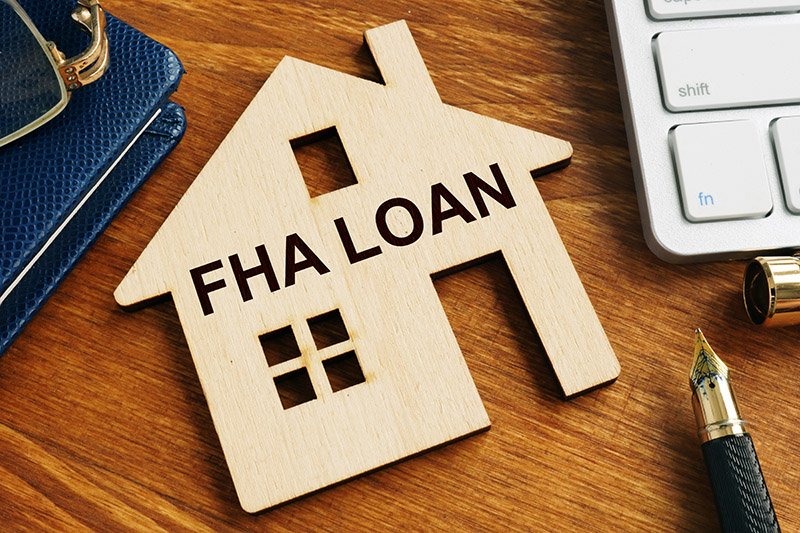
What Are FHA Loans and Why Would Phoenix Home Buyers Need Them?
Purchasing a home is a far better investment than living in a rental. When you own a home, every mortgage payment that reduces the principal is building equity in the home. This equity can be used to obtain cash with a refinance or to earn greater profits when you sell the home. Renting an apartment or home, on the other hand, offers no benefits for the money you pay each month toward rent.
The biggest obstacle to homeownership for buyers in Phoenix, AZ is the cost. Homes are expensive, even if they are smaller properties or do not have the most recent upgrades. Families that have lower incomes or poor credit scores are often stuck renting because they have fewer options to buy homes.
Fortunately, there are tools that can help known as FHA loans. Let’s talk about what they are and how they make homeownership more accessible.
Backed by the Federal Government
FHA mortgages are backed by the Federal Housing Administration. This entity insures loans for riskier borrowers so that lenders can lower their standards without taking on additional risk. Conventional home loans are backed by the two real estate entities known as Fannie Mae and Freddie Mac, which are overseen by the government but not managed by it.
The primary benefit of FHA loans being backed by the government is that they are easier to acquire for borrowers with limited resources, with perks such as;
- Lower credit scores
- Higher debt-to-income ratios
- Smaller down payments
- Reduced interest rates
How to Qualify for FHA Loans
As mentioned previously, this type of mortgage is backed by the federal government which allows lenders to lower their standards for approval. The benefits of this have been mentioned, but let’s get a little more specific about what you may need to qualify for an FHA loan.
Lower Credit Score Requirement
Conventional home loans usually require a minimum credit score of 620. However, not all buyers can reach that score. For FHA loan approval, 580 is usually the minimum for most lenders. A strong credit history combined with that minimum score usually puts buyers in a good position to be approved. The stronger your credit score, the more competitive interest rates you can access. The Federal Reserve controls rate hikes that affect everything from startups to home interest rates, so building strong credit can help counteract those effects.
Higher DTI Ratio Allowance
The DTI ratio represents a comparison of your monthly debt and income. A lower percentage means you have a much higher income than debt owed each month. You may need a DTI between 43-45% to qualify for an FHA loan, though exceptions could be made up to 50%.
Smaller Down Payments
For a conventional loan, lenders like to see larger down payment percentages like 20%. The average down payment for an FHA mortgage, however, is between 3.5-10%. This means you do not have to put down as much money upfront to complete the purchase.
Reduced Interest Rates
Interest is what drives up the cost of a loan. It controls the amount that you pay to the lender in addition to the principal. Since these loans are insured by the FHA, lenders are willing to offer lower interest rates to borrowers. The average interest rate in Arizona for a 30-year fixed-rate mortgage is currently around 7.3%, so FHA borrowers can expect to secure a number lower than that.

Property Restrictions
The type of property you can buy in Phoenix with an FHA loan is limited. Conventional loans or jumbo loans may be used to acquire vacation homes or investment properties, but this is not the case for an FHA mortgage. The property in question must become your primary residence once the purchase has been completed.
Additionally, FHA lenders will check several factors to ensure the property is a fair value for what it is being sold for, including;
- Location of the property
- Safety of the surrounding area
- Property’s actual value
- Condition of the property
All these factors can impact whether or not you will be approved for a Phoenix FHA loan.
Tips to Reduce Costs Further
Even with an FHA loan, buying a home in Phoenix can have a high cost. There are a few methods that can help reduce the price you will pay even further.
Negotiation
Home purchases often come down to negotiations between the buyer and seller. The seller wants to make more money while the buyer hopes to save. The greatest dealmakers in history understand the importance of negotiation and how to use strong relationships, bold decision-making, and a value-oriented approach to secure good deals, and those same principles can help you negotiate for a lower price.
Include Closing Costs in Loan
Closing costs often come up unexpectedly for first-time homebuyers. Fees that pay the attorney, real estate agents, title office, and other parties tend to make up anywhere between 3-6% of the total cost of the home. Rather than having to cover all these costs upfront, you can often choose to wrap them up into the loan payments. This will slightly increase your monthly payments but will lower the initial cost of buying the home.
Research Unsold Homes that are Comparable
One of the most effective ways to reduce the price during a negotiation is to research comparable homes in the area that are unsold. You can use the prices of those homes to convince a seller that their home is not worth as much as they listed it for. Lean on your real estate agent to help with this step.
In Summary, FHA Loans Make Homeownership in Phoenix More Affordable
Plenty of potential buyers become discouraged about their prospects for purchasing a home when they see local prices or dive into their finances. Often, this turns them away from entering the market. The problem is that so many buyers are unaware of the tools they can use to purchase homes in Phoenix even with limited resources or a weaker credit score.
The FHA loan program was started to make the dream of homeownership more accessible to more people. If you think that you cannot afford a new home, be sure to speak with lenders in Phoenix first to talk about your options. You may find that buying your first home is just around the corner thanks to the FHA mortgage program.




